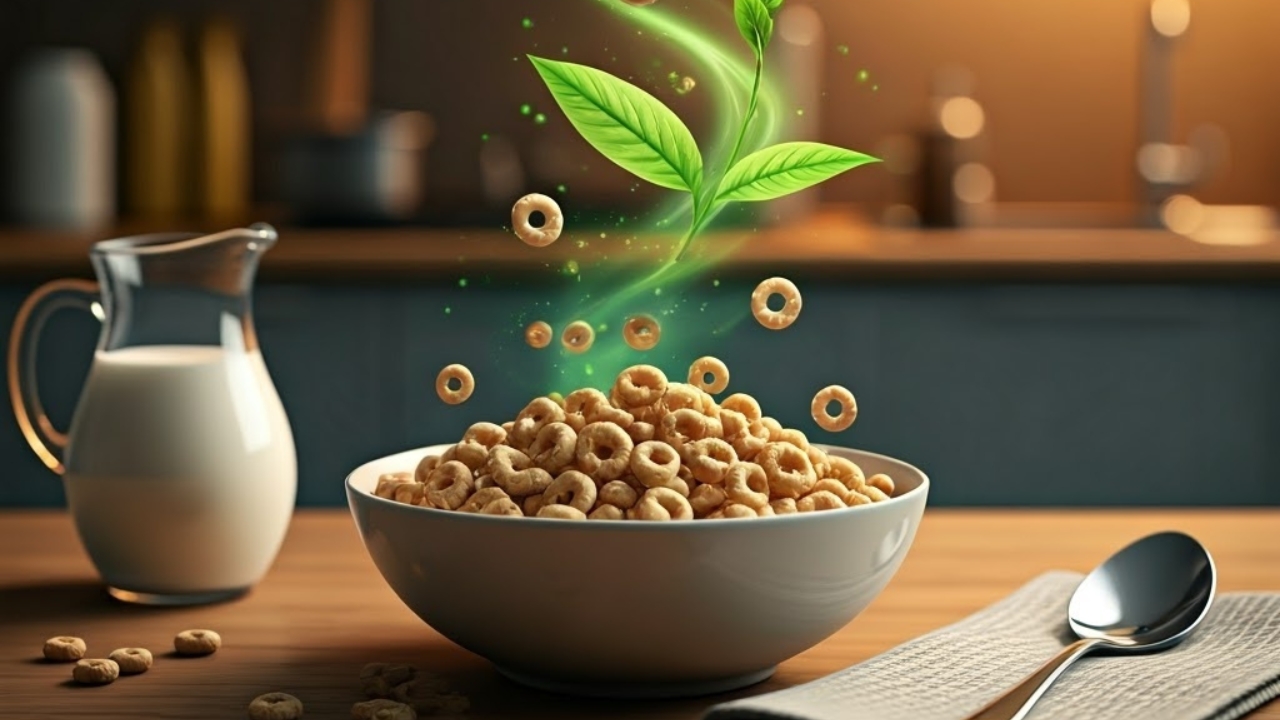
How Plant Cell Cultivation is Revolutionizing Ultra-Processed Foods
Ultra-processed foods (UPFs) dominate global diets and account for 57% of daily calories consumed by the average American, according to The British Medical Journal. The popularity of these highly processed foods can be attributed to their convenience, affordability, and extended shelf life. But UPFs often lack essential nutrients and are linked with health issues such as obesity, diabetes, and heart disease. Plant cell cultivation offers an opportunity to reformulate these foods by adding sustainable, nutrient-rich ingredients that address some of their drawbacks.
As consumers increasingly seek healthier, nutrient-rich products, plant cell cultivation presents a revolutionary solution—one that can enrich UPFs with bioactive ingredients and essential nutrients without sacrificing taste, texture, or affordability. In total, this technology enables more sustainable, contaminant-free, and health-focused food options.
What’s Missing in UPFs?
UPFs are crafted for convenience and sensory appeal. They are designed to be irresistible. But they are packed with sugar, salt, fat, and empty calories; and they lack the vitamins, minerals, and bioactives that promote health. In other words, these foods often fall short in delivering essential nutrients. What’s more, they exacerbate dietary imbalances and increase the risk of chronic conditions. Plant cell cultivation offers a transformative way to address these deficiencies and redefine the future of processed foods.
The Downside of UPFs
Excessive consumption of ultra-processed foods (UPFs) is strongly associated with a range of health risks:
- Obesity: A 2023 analysis in Nature Reviews Endocrinology found that the high caloric density, low satiety, and poor nutrient profile of UPFs significantly increase obesity risk.
- Metabolic Diseases: Diets high in UPFs have been linked to type 2 diabetes, cardiovascular disease, and even some cancers.
- Gut Health: UPFs are often lacking in fiber and loaded with potentially harmful additives, which can disrupt gut microbiota—the microorganisms essential for digestion and immune function.
While UPFs continue to dominate global diets, growing consumer awareness is driving demand for healthier alternatives. Products like omega-3-fortified spreads and protein-enriched cereal are early examples of this trend. Plant cell cultivation could facilitate and extend this trend by offering a more sustainable and innovative way to add nutrients to UPFs. These nutrient-rich, health-conscious options will meet consumer preferences and environmental goals.
How Plant Cell Cultivation Redefines Nutritional Possibilities
Plant cell culture technology is revolutionizing the food industry by producing high-quality, consistent bioactive ingredients in controlled environments. This innovative process enhances the beneficial compounds found in plants without the variability found in traditional crops.
Take blueberries, for instance. They offer numerous health benefits because they are rich in antioxidants like anthocyanins. By culturing cells from blueberry, we can produce these powerful bioactives in a stable form that can be easily integrated into food products without changing the taste or increasing the number of calories.
The Problem of Declining Nutrient Density in Crops
Beyond the challenges of UPFs, the declining nutrient quality of crops also threatens global nutritional security. Over the past 50 years, soil degradation significantly reduced the nutrient density of many crops. Modern agricultural practices often prioritize high yields over nutrition, which can deplete the soil of essential nutrients like magnesium, iron, and zinc.
For instance, a study published in the Journal of American College of Nutrition found that the iron content in spinach dropped by 32% between 1950 and 1999. Additionally, soil erosion and over-farming have left 33% of the world’s arable land moderately to highly degraded according to the FAO.
As a result, even fresh produce now falls short of providing the same nutritional benefits it once did, reducing access to vital nutrients–even for health-conscious consumers. Plant cell cultivation offers a sustainable solution by enriching food products with bioactive compounds, addressing these nutrient gaps, and ensuring a healthier future.
Closing the Nutritional Gap in UPFs
Reformulating ultra-processed foods (UPFs) with cultivated plant cell ingredients could improve access to health-promoting bioactives. For example, manufacturers could enhance granola bars with antioxidants or breakfast cereals with polyphenols, both of which are important for heart and metabolic health.
This approach also supports sustainability. Culturing plant cells requires fewer resources compared to traditional agriculture, providing a reliable, scalable, eco-friendly way to produce nutrient-rich ingredients. As climate change and soil degradation continue to threaten conventional farming, plant cell culture ensures a steady and sustainable supply of essential nutrients, helping strengthen food systems worldwide.
Taste Meets Nutrition: The Consumer Advantage
For UPFs to thrive in the marketplace, they must deliver on taste—and biotechnology can make this possible. For example, microencapsulation allows nutrients to be integrated seamlessly into food products without altering flavor or texture. Additionally, ingredients produced through plant cell culture avoid sugars and unwanted compounds, delivering only the desired bioactives for healthier, nutrient-rich options.
Examples of UPFs improving their nutrient profiles include:
- Protein-enriched cereals: Boosted with plant-based protein to support muscle health.
- Omega-3-fortified dairy drinks: Offering heart and brain benefits.
- Fiber-enriched snack bars: Promoting better digestion and gut health.
These product innovations reflect the growing consumer demand for healthier, convenient food options. With plant cell cultivation, the food industry can elevate these advancements, creating scalable, sustainable, and nutrient dense solutions for a healthier future.
Ayana Bio: Leading the Way in Plant Cell Cultivation
At Ayana Bio, we are transforming the food landscape through plant cell culture. We aim to revolutionize how nutrients are delivered in food by producing sustainable, high-quality bioactive ingredients. Our mission is to empower manufacturers to create healthier, more nourishing UPFs that don’t compromise on taste or affordability.
The future of UPFs isn’t just about reducing harmful ingredients—it’s about enhancing their nutritional value. Plant cell cultivation offers a transformative solution to develop sustainable and contaminant-free products that nourish consumers while maintaining the convenience and flavor they love.
By addressing challenges like UPF nutrition gaps and soil degradation, we can build a healthier, more sustainable food system—one bioactive ingredient at a time.
 BACK
BACK